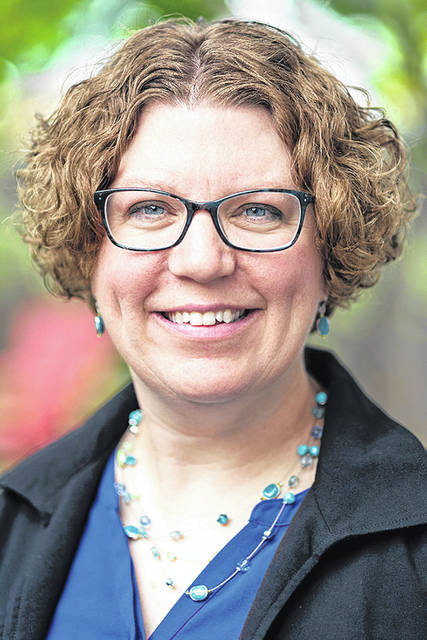
Despite the closure of public schools due to the novel coronavirus crisis, there are opportunities to improve education, a professor said in a virtual lecture this week.
“We want to have an engaged and educated citizenry,” said Michele Nobel, professor of education at Ohio Wesleyan University, on Wednesday. “When we look at COVID-19, that has a big impact. Do we have the political and social will to drive change? We have a chance to work on some real solutions here. I don’t want to go back to normal, I want to go back to better.”
Historically, American schools have made changes or reforms through legislation and litigation to improve access and quality. In 1907, the school day was extended with the purpose of educating the whole child. The pandemic has shifted learning to being online, disrupting communities built around schools.
Moving the school to the home may feel unprecedented, Nobel said, but it has commonly happened in the aftermath of natural disasters. However, COVID-9 has required a more massive shift than past events.
“Should we have closed our schools? Do school closures help slow pandemics? The short answer is yes we should have,” said Nobel, who pointed out data from past influenza and coronavirus pandemics show that transmission was reduced during closures, although there wasn’t a consensus on a national level.
Nobel said educators have risen to the challenge of COVID-19, but that’s nothing new. She pointed out that in the last century, at times schools shifted to being in the open air to prevent diseases; and during World War II, women began moving into administrative positions. More recently, desegregation, the Civil Rights Act, and other measures made schools available to all students. Now schools are not only educating children, but they are providing services to their families as well.
The school closures have resulted in many parents taking the place of their child’s teacher, “and I know that’s hard,” Nobel said. “This experience has really exposed a lot of the things that are awesome about public schools.”
Yet despite community support, inequities in resources continue in public schools, such as access to food (14% of households), ensuring students are safe (2.5% of students), and the digital divide. Of the latter, Nobel asked, “Is internet access a human right?”
Other issues that have come up during the closures, Nobel said, include that some students may need more help to grow, and access to teachers and high-quality instruction. Despite this, she said some students have thrived and actually tested better remotely than they did in the classroom.
On the other hand, “even our most privileged students are probably going to have some gaps” in learning due to being away from the classroom, she said.
Nobel and her husband are teachers, but she admitted their children “struggled” learning remotely, and they struggled teaching them.
Once students return to classroom settings, she said “it will be up to the teachers to look at each individual student and craft some learning plans.”
Equitable school funding, having the right class size, bridging resource gaps, and getting and keeping the best teachers were among the opportunities for public schools to improve, Nobel said.
“Some of the things we need, we’re not going to get right away. I feel on the local level we’ll be able to move students forward. We know that families are hurting, so what can we do to support families in this time of great crisis?” Nobel said.
On a personal level, she recommended that concerned citizens attend school board meetings, join a PTO/PTA, follow schools on social media, volunteer at schools and vote.
In response to an audience question, Nobel said the pandemic has caused her to rethink some of her approaches to teaching. She hoped some of the things that worked well during remote learning would be incorporated into the classroom once students return to schools.
“It’s not going to be easy, and it’s not going to be clean, but we should be talking about it,” she said.
Nobel added this experience may cause a bump in online learning and home schooling, “but there are families like my own who really miss traditional public schools and a face-to-face environment. We don’t know what schools will look like when we go back. Wearing a mask is going to be challenging.”
“How the Pandemic Exposed What’s Great and Not So Great in Our Public Schools,” Wednesday’s virtual class, ended week four of a 10-week, free online course called “We’re in This Together: An Interdisciplinary Exploration of the Coronavirus Pandemic.” Taught by 24 Ohio Wesleyan faculty members, the course is open to students and the public alike.
For more information about OWU’s “We’re in This Together” course, visit www.owu.edu/COVIDclass.


